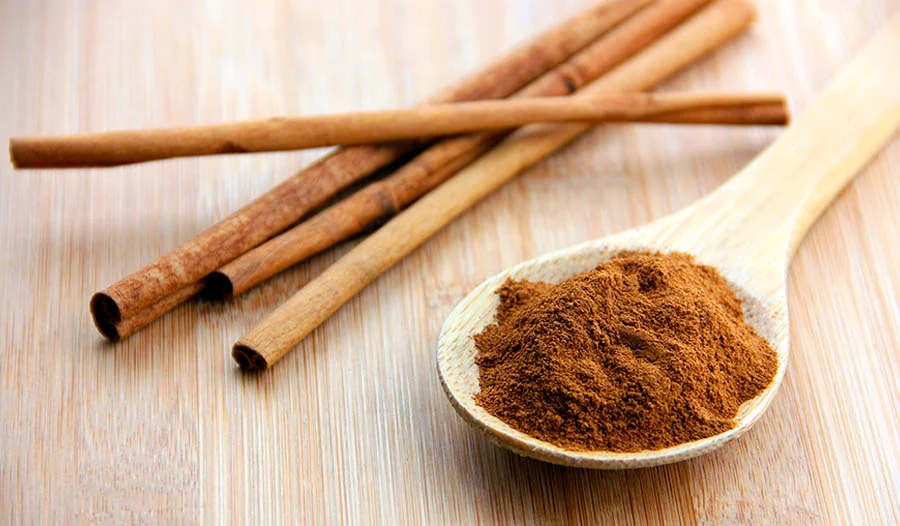Benefits of cinnamon on patients with diabetes

Cinnamon is one of the oldest spices. It is mentioned in the Bible and was used in ancient Egypt not only as a drink flavoring and medicine, but also as a preservative. Cinnamon was highly prized and considered more valuable than gold. Around the same time, cinnamon was also widely recognized in China, being mentioned in the earliest Chinese books on plant medicines, dating back to around 2700 BC.
Cinnamon’s popularity has continued throughout history. A recent series of clinical studies have confirmed its benefits in blood sugar control, leading to a resurgence in cinnamon’s popularity.
While not all initial studies showed positive effects, recent research on type 2 diabetes patients has consistently shown promising results. In experimental models and animal studies, researchers have proven that cinnamon polyphenols have insulin-like properties, promoting glucose uptake in skeletal muscle and other body tissues.
Two reviews that examine the impact of cinnamon on blood sugar control in type 2 diabetes have been published. The first, which appears in the September 2011 issue of the Journal of Medicinal Food, was conducted by researchers at the University of California, Davis and analyzed the results of eight clinical studies on the effects of cinnamon and cinnamon extracts on individuals with type 2 diabetes or prediabetes. The authors found that both types of cinnamon led to a statistically significant decrease in fasting blood sugar.
A more recent meta-analysis, published in the May 12, 2012 issue of Clinical Nutrition, was carried out by researchers at the University of Western London and focused specifically on the effects of cinnamon on blood sugar control in patients with type 2 diabetes. The researchers analyzed data from six randomized controlled trials involving 435 patients and concluded that cinnamon can help to regulate blood sugar levels.
Another double-blind study was just published in the June 2012 online edition of Nutrition Research. In this study, a water-soluble cinnamon extract was used. Sixty-six patients with type 2 diabetes were divided into three groups: placebo, a daily 120 mg cinnamon supplement, and a daily 360 mg cinnamon supplement for three months. All participants were also taking the diabetes drug glipizide.
The results showed that after three months, fasting blood sugar levels were significantly reduced in patients taking cinnamon: an average of 18 mg/dl in the low-dose group and an average of 29 mg/dl in the high-dose group. No changes were observed in the placebo group. In addition, levels of triglycerides were also significantly reduced in the low-dose group, an average of 68 mg/dl, but only slightly reduced in the high-dose group. However, despite reductions in HbA1c levels (indicating blood sugar control over a three-month period) in both groups, they did not reach ideal levels, meaning that additional measures (such as weight loss, low-glycemic diet, and exercise) are still needed.
In the study, the cinnamon extract used was in 60 mg tablets, derived from 2.4 grams of natural cinnamon. Therefore, the dosage of this water-soluble extract is equivalent to 4.8 and 14.4 grams of cinnamon. There are various forms of cinnamon extract and natural cinnamon powder available on the market, all of which have shown good clinical efficacy. I recommend using a water-soluble extract that is equivalent in dosage to what was used in the study. In addition, a cinnamon extract standardized for type-A polymers can offer better quality control. These extracts are usually standardized to 3% type-A complete polymers.
In conclusion, cinnamon and cinnamon extract can be helpful for patients with type 2 diabetes, but they are not a miracle cure. In most cases, additional supplementation is needed.
If you find this article enlightening for you, please give it a like and forward it to more friends, so that people around you can get out of the state of weak willpower and into the habit of the great master.
Thanks for reading!
